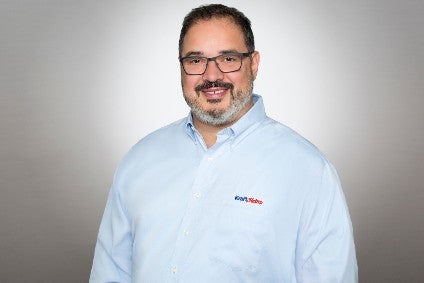
Kraft Heinz CEO Miguel Patricio has said the ketchup and soup giant needs to makes changes to the way it innovates after a “frenzy” of product development proved unsuccessful.
Speaking to analysts after the US group announced its third-quarter results, Patricio said the company needed to move “innovation support to fewer, bigger, better initiatives, launches that promise to be more incremental to our base”.

Discover B2B Marketing That Performs
Combine business intelligence and editorial excellence to reach engaged professionals across 36 leading media platforms.
The former Anheuser-Busch InBev executive said: “The company has been on a frenzy of innovation in the last two to three years and trying, through launching new products, to compensate the decline in net sales. We really have not been successful on that.”
He added: “We brought a lot of complexity to the system but this innovation was not translated into additional sales. It was very cannibalistic and brought much more complexity and, as a consequence, a lot of supply chain losses and lower margins. Much of this innovation was done through third-party manufacturers.”
Patricio, the former chief marketing officer at beer behemoth AB InBev, joined Kraft Heinz in July. Predecessor Bernardo Hees left in the wake of a shock announcement from the company in February that included a US$15bn write-down on certain assets.
In August, Kraft Heinz reported falling half-year sales and profits – and another round of impairment charges – with market watchers remaining unsure about the company’s future direction.

US Tariffs are shifting - will you react or anticipate?
Don’t let policy changes catch you off guard. Stay proactive with real-time data and expert analysis.
By GlobalDataPatricio plans to unveil his strategy for Kraft Heinz early next year but yesterday (31 October) he told analysts the company had started to work on ways to try to improve its performance and grow.
“We are developing nine transformational projects that touch the core areas of our company to improve our capabilities and make us a more efficient company. Our teams are making rapid progress understanding root causes, defining what needs to be done and already taking some actions that will benefit 2020,” Patricio said.
“The nine projects currently underway include five projects focused on top-line, two projects focused on operational efficiencies and two projects focused on organisational effectiveness.”
Among Kraft Heinz’s early work, the company has identified products it can prune from its portfolio in the US. “Based on our work to date, we see scope to rationalise a significant portion of the SKUs in our US business and with minimal impact on profits,” Patricio said.
“When I arrived and with fresh eyes, I asked the obvious questions and one of them is: ‘Let me understand profitability by SKU, let me understand volume by SKU.’ There’s a big tail of SKUs that have a negative margin or are not important at all, [are] very, very small, or both. That can just generate a lot of complexity in the system. And so we are going to reduce this.
“At the same time that we innovate and we put new products in the market we have to have the discipline to clean the tail of low-margin, negative-margin or are low volume, very low volume.”
The Kraft Heinz chief said innovation is a “capability” the company needs to improve and one he is “very focused on”.
He added: “It is a big driver for growth for the future, has to be, especially in the food industry. We have to do bigger innovation. We have to do fewer innovations. We have to do bolder innovation. We have to do profitable innovation and it has to be incremental.”
Since the formation of Kraft Heinz in 2015, the practice of zero-based budgeting as been central to its strategy of driving improved profitability and therefore shareholder returns. However, critics of zero-based budgeting have argued it hinders a company’s ability to grow sales.
Patricio said zero-based budgeting was also used at AB InBev and he believed in its benefits.
“I love ZBB. I really do,” he said. “In my previous company, I worked for 22 years and I learned to love ZBB – but for one reason: because ZBB was a big lever or made it possible to grow the business throughout the year. So when I look at ZBB, I look at it as a discipline to make things every day better, so we can free-up resources to invest in other products. I don’t look at ZBB as a way to basically cut costs and cut costs. I see it as a way to do things better every day and the consequence of that is to be more efficient and to free-up resources to invest in the business.”
In Kraft Heinz’s third quarter, which ran to 28 September, the company’s net sales fell 4.8% to $6.08bn, weighed down by asset disposals and exchange rates. On an organic basis, net sales dropped 1.1%.
The company’s operating income rose 9.8% to $1.18bn. Net income was 45.4% higher at $899m.
Sanford Bernstein analyst Alexia Howard said: “Given all the disappointing news earlier this year and low valuation, this set of results is likely to be favourably received. These results suggest that we may be seeing some stabilisation of the EBITDA margin and top line. This is likely to be encouraging news for investors worried that this was a falling knife situation, particularly in the US. From here, all eyes will now turn to the company’s strategic plan to be unveiled in early 2020.”





